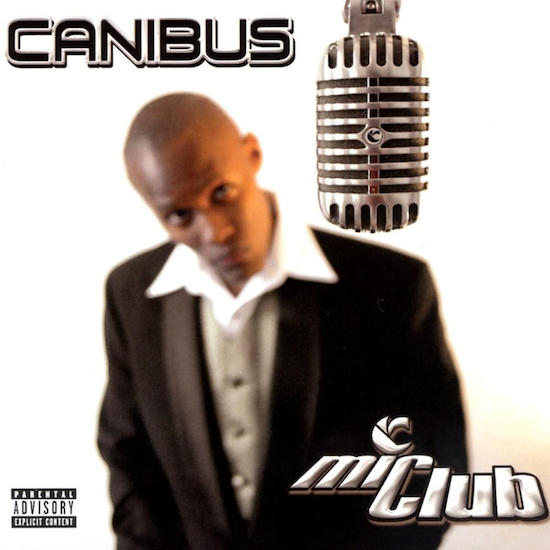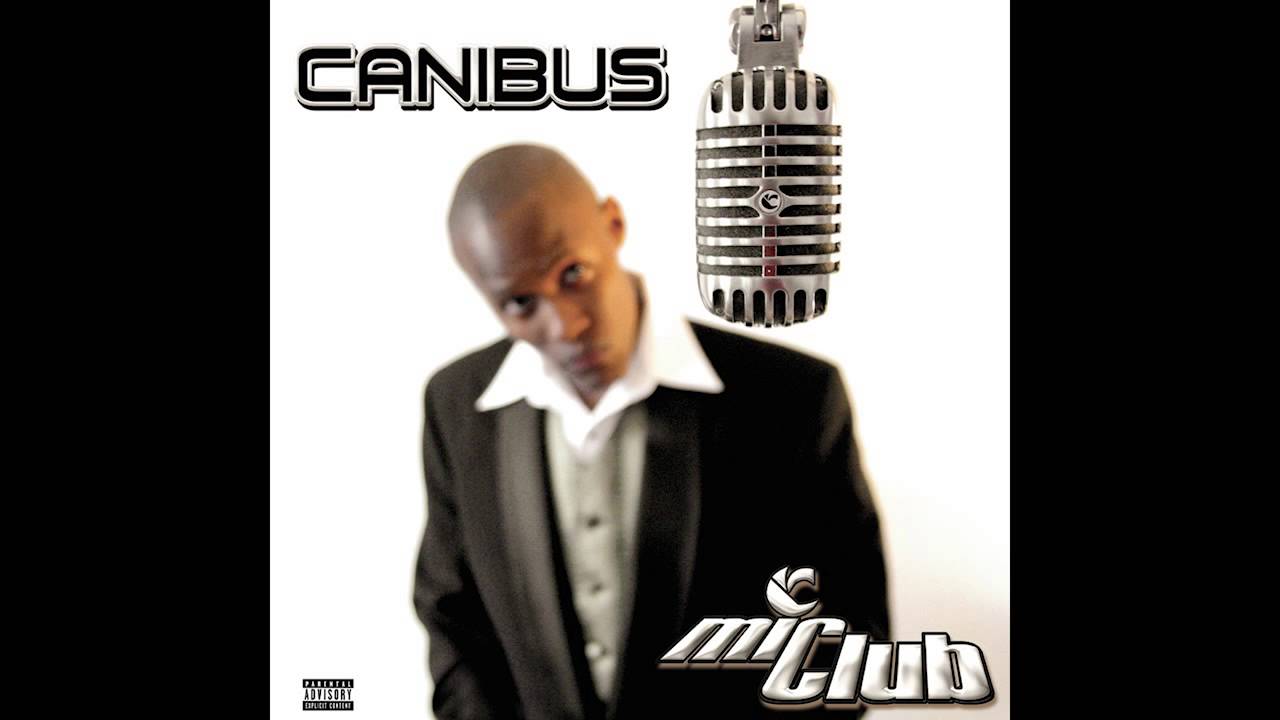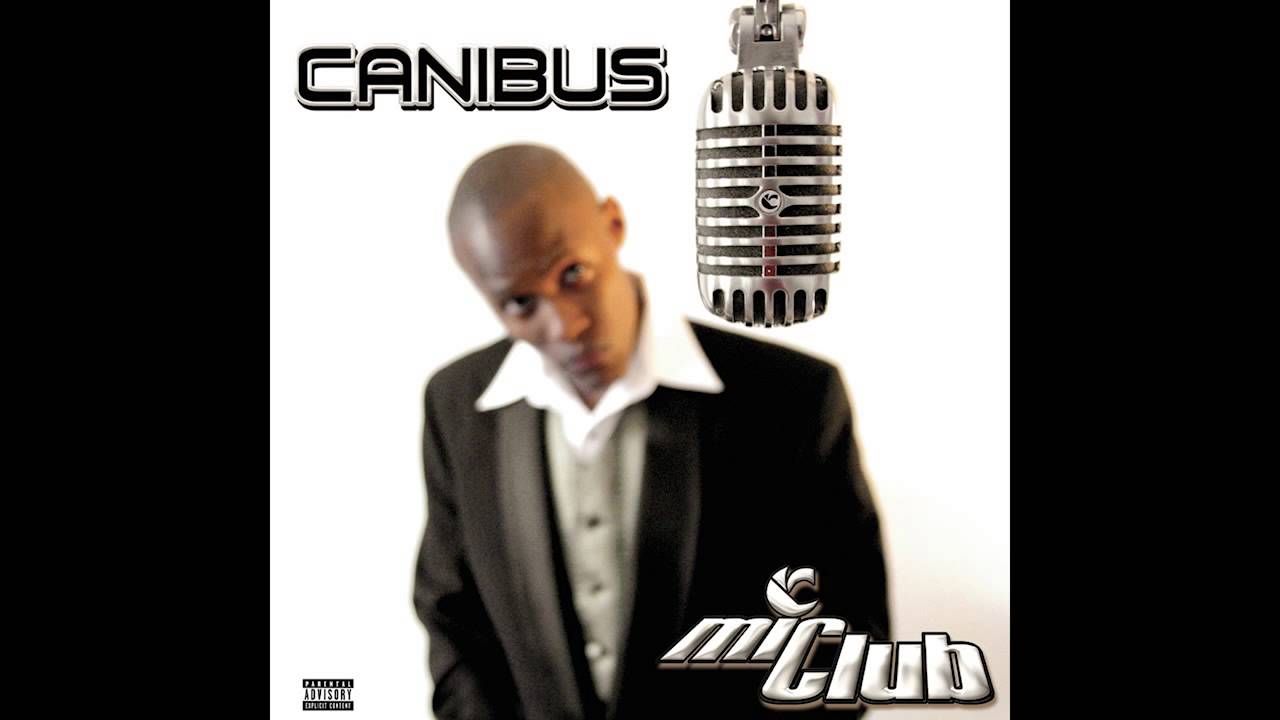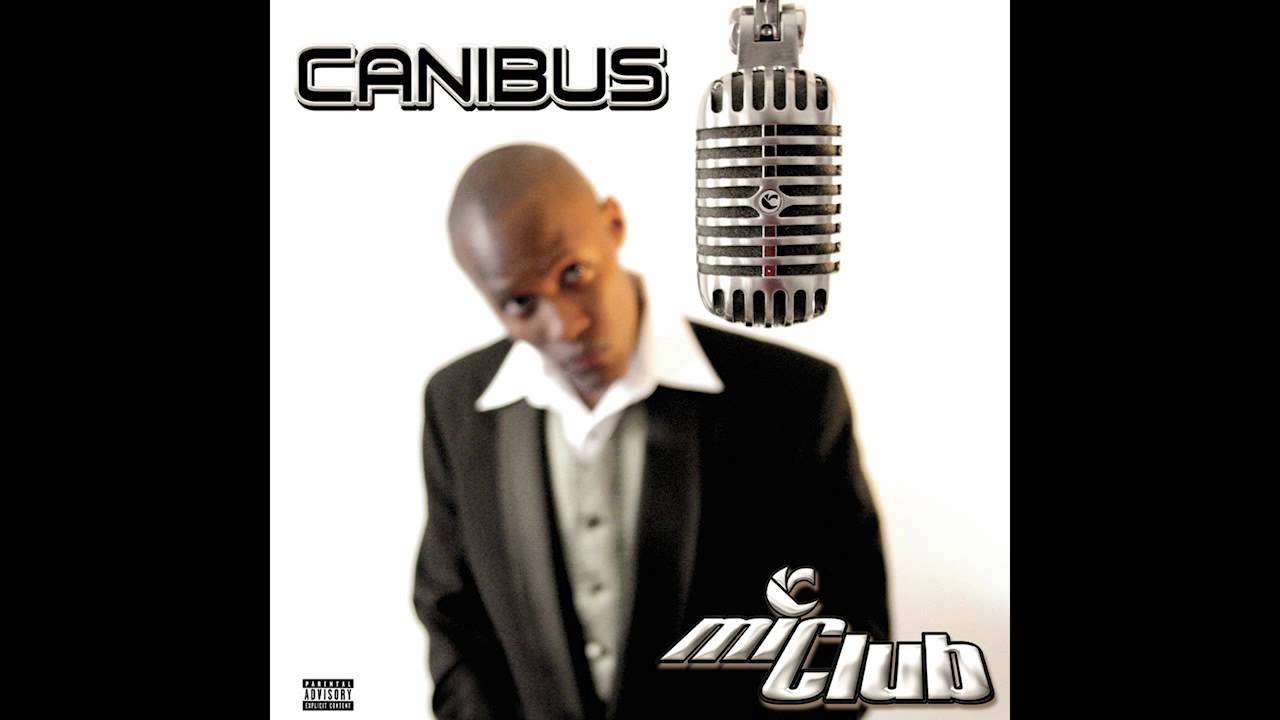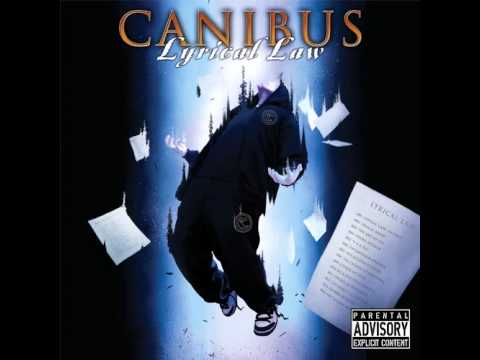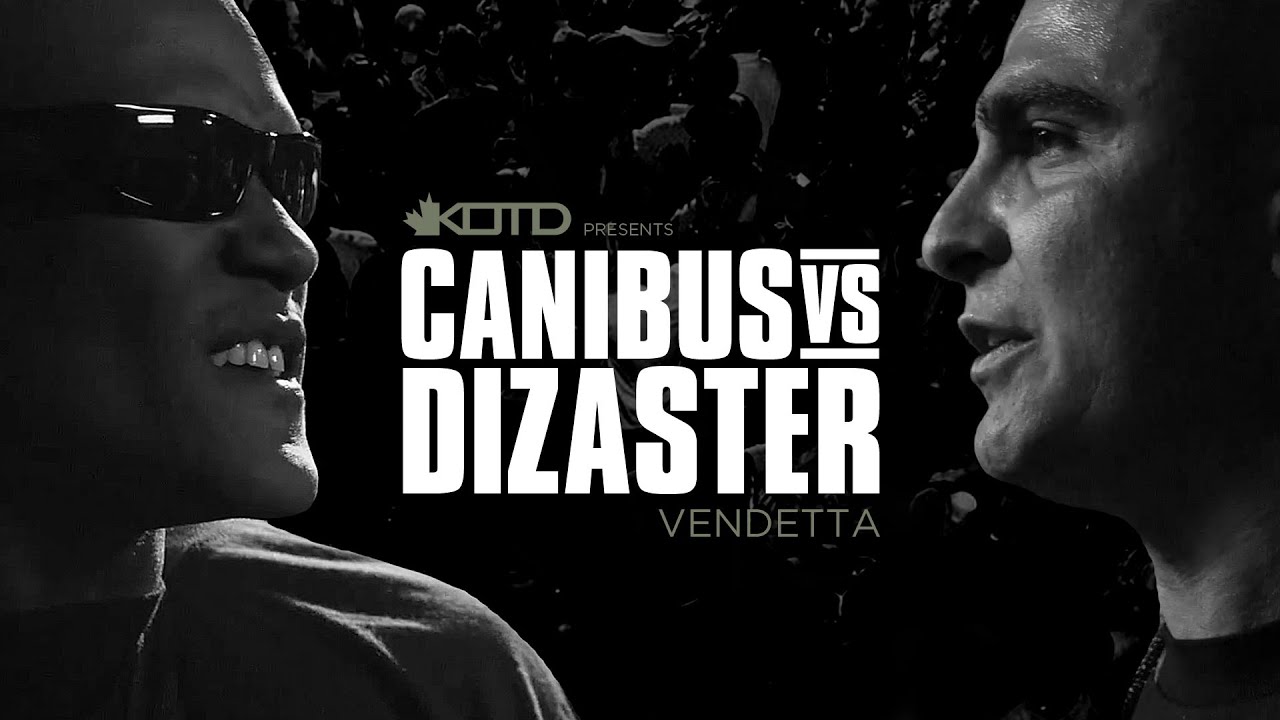Canibus’ name isn’t one we see on most lists of GOAT rappers. Hailed as an emerging hip hop titan in the late 1990s after a scattering of explosive guest verses on other people’s tracks, his debut album was a straight-out-the-box success but divided opinion. By the time he made a follow-up, even he was slagging it off – yet it remains his biggest seller. A reputation built on lyrical combat allowed an argument to be made that, perhaps, the studio was not where he did his best work; but an embarrassing pay-per-view performance in 2012 shredded his battle-rap bona fides. High-concept projects put him ahead of the industry as digital distribution began to destroy the music business, but the end products – when, and if, they eventually emerged – often were taken as admirable attempts at something new rather than being hailed as unambiguously successful reinventions of tired approaches. Most pronouncedly and problematically, his periodic wars of words with rap luminaries – first, and most infamously, with LL Cool J; but he also got into it with Eminem, and even ended up having on-record beef with the people behind the Beef documentary DVD series – won him time in the spotlight, but quickly came to overshadow the rest of what he was about as an emcee, much to his own very evident chagrin. For every listener he won over with his ferocious wit, extensive research and long-chain-hydrocarbon approach to constructing rap verses, there’d be at least a couple of dissenting voices taking to the chat rooms and message boards to decry his lyrics as impenetrable gibberish, deriding Canibus as too clever for his own good.
And yet, there have been times where he’s been untouchable, as even some of his harshest critics have occasionally been forced to admit. And for all that the high points might appear scattered across his career, there was at least one concerted body of work within which the audible planets and lyrical constellations aligned, and Canibus made an album-length statement of intent that really showed the world what he was about and was capable of being. That it came at one of his lowest points in terms of his profile and his public perception, following a third LP that prized concept over content to a career-threateningly calamitous degree and a response to that record that led him to question his very future as an artist, meant that it made far less of an impact culturally and commercially than it should have done. Yet his fourth album, Mic Club: The Curriculum, is surely Canibus’ lasting landmark achievement – the monument he’s placed on the map, forever altering the topography and ensuring anyone treading in adjacent territory will eventually have to accept that they can only define where they are and plot a path to where they’re heading after taking a bearing based on a study of it. And it works in large part because, for the duration of its conception and creation, Canibus the rap purist lit upon a double-helix concept that strengthened and underpinned his demonstrations of artistry rather than overshadowed or shrouded them.
It is entirely, unapologetically and definitively an emcee’s album of straight-up, no-frills, nothing-left-in-the-tank rhyming. He stakes his claim for top-five emcee status and respect explicitly: "The limelight isn’t where I belong," he snarl-snaps early in the running time: "The top four don’t even look in the mirror no more/If they did I’d be in the mirror lookin’ back at ’em/Ready to grab ’em, kidnap ’em and put ’em on my album." This is not a record for the dilletante or the faint of heart, and it has put off more listeners than it has converted – but for those who share Canibus’ belief in the power and the potency of the unfettered art of raw emceeing, there may be no better album-length example committed to tape.
Three tracks feature guest emcees, while a fourth finds Canibus’ different personas in animated dialogue with each other. The remainder are constructed as uninterrupted single verses, with only one of them – in which the first couple of lines are repeated at the beginning and reappear again at the end – having anything that comes even remotely close to being a hook or chorus. Aside from the moments at the start of each track where the music gears up – and during which you can mentally picture Canibus pausing at the mic stand, gathering his thoughts and summoning his powers – there’s no distractions, no light relief, no let-up: just ferocious focus from a combative emcee delivering narratives that work both as abstract meanderings down the insides of some baroque trains of thought, and as laser-guided precision strikes on a series of fitting targets for someone steeped in hip hop’s pugilistic, battle-hardened traditions.
The record’s concept is twofold, the title’s Fight Club nod giving Canibus the excuse he (maybe) needed to turn parts of each song into aggressive battle-rap workouts, the subtitle’s scholastic element reframing the record as part instruction manual, part emcee boot camp. Most song titles amplify the latter element – ‘Liberal Arts’; ‘Master Thesis’; ‘Dr C PHD’; ‘Curriculum 101’ – while others (‘Behind Enemy Rhymes’; ‘Allied Meta-Forces’, in which he spars with Kool G Rap; the self-battling ‘Bis Vs. Rip’) reference the combat theme. Within each song, little deviation is allowed from either trope – not that that prevents Canibus from allowing his free-associative writing to take flight for a solar system’s worth of distant, different ideas. Yet even when a rhyme has dragged the listener off into a hitherto unexplored part of his mental-image gallery, the record’s enduring effect is to emphasise how deeply embedded each track is in these two foundational imperatives. Not only is Canibus determined to deliver an hour of pure, undiluted emceeing, he ensures there’s an uncommon focus underpinning every line, reflecting an almost ascetic discipline that sounds like it has driven every aspect of the writing and recording.
The focus and direction are laid bare from the off. The intro is over after barely a minute, and once the first proper track begins there’s just seven beats of Canadian producer DJ Kemo’s soundbed, occupying less than two seconds, before Canibus launches into the single verse of the quite brilliant ‘Poet Laureate’. Straight away the similarities between rap and boxing are laid bare: the sleeve art’s image, a hanging microphone highlighted while a suited Canibus hovers, out of focus, in the background, helps emphasise the notion. Highlights for this listener include his decision to rhyme "ganglia" with "East Anglia"; the image of him being "quick as a glance and flickers from kerosene lamps"; the inspired, hilarious metaphor for his being at the summit of rap capability, "the cake icing of rhymingness"; and the delivery of the line "I’m better than you; I’m better than you; I’m better than you", with each repetition changing the emphasis and therefore subtly but significantly altering the meaning. But maybe the best bit is the passage in which – following his post-9/11 decision to enlist in the US Army – he aims a Gatling gun at his antagonist’s "bulletproof chassis" and "keeps firing at you ’til you’re trapped in" as "non-combatants scramble for helicopter extraction/while I’m back at Fort Bragg, bragging". (On ‘C Section’ he also became the first, and almost certainly will remain the only, lyricist to ever mention the Northrop Grumman EA-6B Prowler electronic-warfare aircraft in a song.)
‘Master Thesis’ is the perfect second half of the album’s opening one-two combination, which works both as an extension of ‘Poet Laureate’’s simple manipulation of words’ sound and meaning, and, in a coded series of daringly clever metaphors, as one of the most intricately detailed declarations of hip hop supremacy ever committed to tape. Taken at face value it’s an explosion in the engine room of an engaged imagination: Canibus taking the listener from Atlantis and the library of Alexandria to Rome, in the company of architect and futurist Buckminster Fuller, before recalling school days and referencing the Planck constant. There’s some terrific couplets displaying his rapier wit and determined idiosyncrasy ("Grand Marnier for me, scotch on the rocks for you," softening his opponent up before the knock-out punch of the next line: "Your vocab is smaller than a cockatoo’s") and some strident declarations of his commitment to the art form and a defence of his process from those who consider him pretentious or overblown ("These are the contents of the covenant of the ark/Listen to my chest beat, tell me this ain’t heart"). But on subsequent re-evaluation, and after the listener has given the record considerable thought and attention, a series of deeper meanings begin to emerge. What appears to be an essay in ancient history becomes an analogy about the history of rap – his claim to have "read one fourth of the Library of Alexandria before it was burned to the floor" becomes an admission that he was only able to pick up a fraction from hip hop’s pioneers before the culture was subsumed in bling and commercialism; his mental recreation of a lost civilization that "cooked on symmetrical stoves" works as a depiction of emcees rhyming to beats a DJ would cut from twin turntables and the "Buckminster Fuller-type dome" that they "burned incense" in could be the circular, wire-lattice-constructed head of a microphone.
The pummelling doesn’t let up, even though the next track – ‘Behind Enemy Rhymes’ – features the album’s one almost-chorus, and ‘Allied Meta-Forces’ introduces its first guest Kool G Rap. A rapper routinely criticised for poor beat selection, Canibus was particularly well served by his (otherwise-obscure) collaborators Kyros and PlusScience here. The sound beds for ‘Cenior Studies 02’, where Kyros loops a gargantuan stomp from the orchestral version of Metallica’s ‘Devil’s Dance’, and the flamenco guitars of ‘Liberal Arts’, the one track produced by Jedi Mind Tricks’ Stoupe The Enemy Of Mankind (and also featuring JMT rapper Vinnie Paz), ensure the record has a musical breadth that the furious focus of the vocal performances might have militated against – and even though the range of sounds in the production palette is wide, the blend of drum snaps, melodic stabs and an overall sense of musical muscularity ensures that the whole thing hangs together compositionally. The raps, clearly, are dominant, and it’s inevitably difficult to focus on what’s going on beyond them – but when you get to a point where you’re able to listen around the vocals, you’re not left disappointed or let down by what you find.
‘Bis Vs. Rip’ is one of the main points around which Mic Club pivots. Unprecedented at the time, and still a technically, conceptually and perception-challengingly daring idea, the song provides a standout even after the listener has been left on the ropes by the brilliance of much of what has preceded it on the LP. In the song, various sides of Canibus’ personality are given their chance to speak out: and none of them get along well with each other. The conceit the lyric’s narrative is built on is that Canibus’ career, pretty much in the toilet at the time the record was made, had been torpedoed by his own failures: and by his willingness to allow either the more extreme, angry, battle-focused element of his character to gain pre-eminence, or for his pragmatic, calculating, business-minded persona to take decisions that undermined the end product. These were all arguments about him that had been made in public by fans, critics, peers – but here he allows id, ego and superego to conduct a battle for supremacy while his audience listens in. Outside Canibus’ own discography, nothing truly comparable to it has been recorded before or since.
Canibus had already given the name Rip The Jacker to the battle-rap side of his work: the formulation appears in the song ‘The Rip Off’ on his previous LP, C! True Hollywood Stories, where a sort of "origin myth" is put in place ("Rip the Jacker’s on the loose in London/He slipped through US customs and flew to Dublin/Frontin’ as a janitor in a school or somethin’"). Although created as part of Canibus’ extended jousts with Eminem, the persona is an obvious nod to the battle with LL that had brought him to worldwide prominence (Cool J released a track called ‘Jack The Ripper’ in 1988, itself part of an on-record battle with Kool Mo Dee). ‘Bis Vs. Rip’ opens with a reading of the "Dear boss" hoax letter sent to police investigating the Whitechapel murders in 1888, emphasising other aspects of the character’s mindstate and also perhaps deliberately underlining the fallacy of taking Rip at his word. As it ends, Rip claims to have been kept prisoner by Canibus, chained up in a basement – a throwaway image likely used for dramatic and comedic effect, but also potentially a revealing glimpse of the work Canibus had to do to keep his most aggressive impulses in check. The track essays a series of ideas that would have perhaps raised few eyebrows if they appeared in a novel, or a screenplay: but as a song – and where each character is not a pure fiction but drawn from the artist’s real life, with the substance of their arguments tracking the path that individual has taken through that life – it is simply astonishing.

Canibus in 2007, photo via Wikimedia Commons
Within the song, when in character as Rip, Canibus unleashes barbs not just at "Canibus" but also "Germaine", the name he was given by his parents. Rip is aggressive, angry and unwilling to brook any argument: he listens while Canibus – or possibly Germaine – attempts to explain how the music industry works and, instead of answering back, eventually just snaps and goes into a breakneck extended freestyle. Eventually, Canibus admits defeat – "I can’t outrap you" – and breaks down a series of career decisions with a disarming frankness. "You didn’t sell enough units, to be honest with you," he rhymes, in a subdued sequence totally unlike any other performance on the record. There is a real sense of pain in these passages – a recognition of mistakes made, but acceptance, too, that it could never have been any other way. "Without you I’m unsuccessful – God bless you," Canibus tells the part of his personality which, this portion of him evidently believes, has inflicted considerable harm on his career. But it doesn’t wash. Rip gets the last few lines, accusing Canibus of patronising him and stealing his lyrics before making off with the car keys and driving away.
Mic Club is a record of mesospheric highs, then: but not everything here can be lauded. The unwritten rules of rap battles appear to insist not just on outwitting an opponent with superior wordplay, but breaking down their confidence through insults and lyrical humiliation. By the time emcee battles had transferred from open-mic nights to records, attempting to lyrically emasculate your competition was an accepted and even expected element in bouts that were almost always conducted between men. Within these displays of peacock strut and testosterone-fuelled bravado, anything other than masculine strength was ripe for denigration: homophobic and sexist slurs became commonplace. There are a bunch of them here, each as reductive and lazy and as unedifying as the next. It can certainly be argued that, as a veteran of on-record combat working extra hard to demonstrate his immersion in the history and practice of the medium, Canibus would have risked putting himself at a remove from those he was assumed to be in competitive dialogue with had he not chosen to follow these conventions. But he has spent so much of his career – of his life! – upending the status quo and doing things differently from his rivals that, you sense, had he chosen to take the higher path, he would only have succeeded ever more comprehensively in putting deep clear water between himself and the rest of the battle-rap pack. It’s the one ingredient in this otherwise spellbinding record that makes it difficult to recommend, and this obliviousness to its damaging consequences remains a blind spot in its maker’s rear-view mirror. If anyone could have shown that hip hop could be about wit, imagination and thinking differently at the dawn of the 21st century, it was this guy.
This album’s importance in the wider world remains open to question. Following the perceived nadir of its predecessor, the misunderstood satire C! True Hollywood Stories, and a declining interest in battle rap as an on-record – as opposed to on stage or, increasingly by 2002, on-message-board – form, it garnered little critical or commercial attention at the time it came out. Canibus has yet to put out anything that’s had as much impact as his major-label debut, Can-I-Bus, and even among dedicated fans of his work, many prefer this record’s follow-up, Rip The Jacker, where Stoupe put music to raps Canibus had recorded in breaks from his military service. But it’s clear that Mic Club loomed large in its makers’ mind for years afterwards – two parts of it, in particular.
‘Poet Laureate’ was to become a signature concept of a track for Canibus, and he would meld it with ‘Bis Vs. Rip’ to startling, unique effect. An extended second version – over seven minutes, completely new lyrics – appears on his fifth album, while an 11-minute ‘Poet Laureate Infinity V003’ appears on 2007’s For Whom The Beat Tolls. By that time Canibus had embedded the idea at the heart of his Poet Laureate Infinity digital experiment where he uploaded five completely different 11-minute a capella raps, with matching structure and cadence, to a virtual mixing desk that allowed four of the five channels to be muted at any one time, with the decision over which to unmute changeable at any split second. This enabled the creation of an unfathomable (if finite) number of entirely new raps. Fans were invited to have a go, and the results were frequently disorienting. Eventually, by chopping up not just phrases or words but syllables and sometimes even the sounds that form parts of syllables, then rearranging them into new words, the PLI performances took on an almost terrifying cyborg quality. At times these came right up to the threshold of listenability, and one or two even strayed beyond – their jagged unevenness making some of the new "performances" sound like they might have once been actual human communication but now had gone off to somewhere else.
The combination of the Poet Laureate Infinity technology and the "battling yourself" concept reached a combined zenith on the Lyrical Law album in 2011, when the real, human Canibus, in Rip The Jacker guise, battled the digital monster version on ‘Rip Vs. Poet Laureate’. Where the 2002 original had concluded with the late American poet laureate (and author of Deliverance), Whit Dickey, talking about his theories around writers’ block, this man-versus-monster version opened with dialogue from Gladiator, Russell Crowe’s Maximus arguing that he’s defeated all possible opponents before Richard Harris’s Marcus Aurelius warns that "there’s always someone left to fight." And with that, battle is joined, the taped-together rhymes launching their attack before Canibus responds.
Yet it is in its implied impacts that ‘Bis Vs. Rip’ emerges as perhaps the key track in Canibus’ discography. Beyond the PLI experiments and his cornering of the extremely specialist market in self-referential one-man battle rhyming, it’s tempting to read the Mic Club track as the moment where the relationships between the different parts of Canibus’ personality were perhaps set in stone. What the song suggests is that, no matter what pragmatism Canibus, or Germaine, might feel was appropriate or advisable to adopt in a given situation, neither of them were able to talk Rip down from that precipice all three of them had reached, and which Rip was threatening to throw all of them off. Certainly, when you look at a few of the decisions made in the years that followed, the poorest ones appear to have been made by the hotter of the notional heads.
Accepting a big pay cheque to battle Dizaster on the King Of The Dot online pay-per-view definitely feels, in retrospect, like it must have been Rip’s choice. Bring it on, give me the money, to hell with the rest of it. It’s not that Rip would have forgotten the line in ‘Poet Laureate’ that warned of this very danger – "Battle rap is nothin’ but a serendipitous whore" – more, surely, that he thought the best way to overcome such concerns was to blast straight through them. Germaine, it can be suggested with some confidence, would have seen the multiple ways it could go wrong, from the very concept signalling a defeat in the years-long campaign to be taken seriously for something other than battling, to the possibility of losing to Dizaster doing further damage to a career that hadn’t been hitting many highs lately anyway. Canibus likely sided with Rip, ignoring Germaine’s premonition that "there’s always somebody with better shit". And all three seem to have failed to realise that the underground battle-rhyme scene that Canibus’ records had helped shape had changed into something else – and that, as a proud and self-contained scene of its own, Canibus, even if still regarded with some fondness as a venerable elder statesman, was a representative of a mainstream that the up-by-the-bootstraps YouTube battlers were doing their damndest to overthrow. Hindsight makes things look inevitable, but even so, it’s difficult to plot the ways Canibus could have come out of that encounter with a win. He wasn’t an off-the-top-of-the-head improviser, and this was an arena where his key skillset – writing articulately, voraciously and with great intellect, splattering those lyrics over boom-bap beats, taking time to hone the perfect line before committing it to tape and selecting the best performance of it to share with fans – was largely irrelevant. It is to his credit that he admitted defeat before the moment that turned the encounter into a meme, when he pulled out a notepad and tried to recite lines he’d written in preparation but hadn’t been able to commit to memory.
Nevertheless, he has continued to make intermittently great albums, both before and after the Dizaster disaster. To Whom The Beat Tolls has more than its share of scintillating cuts; both 2010’s C Of Tranquillity and the 2015 collaboration with Bronze Nazareth, Time Flys, Life Dies… Phoenix Rise are consistent, exciting and excellent. Over the last couple of years Canibus has been unprecedentedly busy: he has released three LPs of his own – the digital-only Microphone Land, with Jaximus, and full-lengths with producers Body Bag Ben (Kaiju) and A-Villa (One Step Closer To Infinity) – contributing to The Last Ride, an long-awaited album by his heavyweight rap supergroup, HRSMN, where he shares lyrical duties with Killah Priest, Ras Kass and Kurupt; and has started selling NFTs via his current online main operating base, www.caninft.com.
So even if there’s the sense that this is a career that never quite hit the heights it appeared destined to reach, there is much to be said for the agility Canibus retains by remaining way off to one side of the mainstream. If he’d had the commercial hits his work manifestly merited 20 years ago, he would surely have been forced to compromise something somewhere along the way. It will doubtless come as cold comfort, but this may be the fate of the purist: and it is to Canibus’ considerable credit that it has been commercial considerations that have always been relegated to the lowest level of importance every time this most singular of emcees has reached another moment of truth. Plenty of people talk about "keepin’ it real", but Canibus is one of a handful who have had to pay the price for doing so. Say what you like about the records, the public perception and the logic that has driven the career choices – but it’s impossible to argue that Canibus hasn’t stayed true to his rhyme-master roots.

